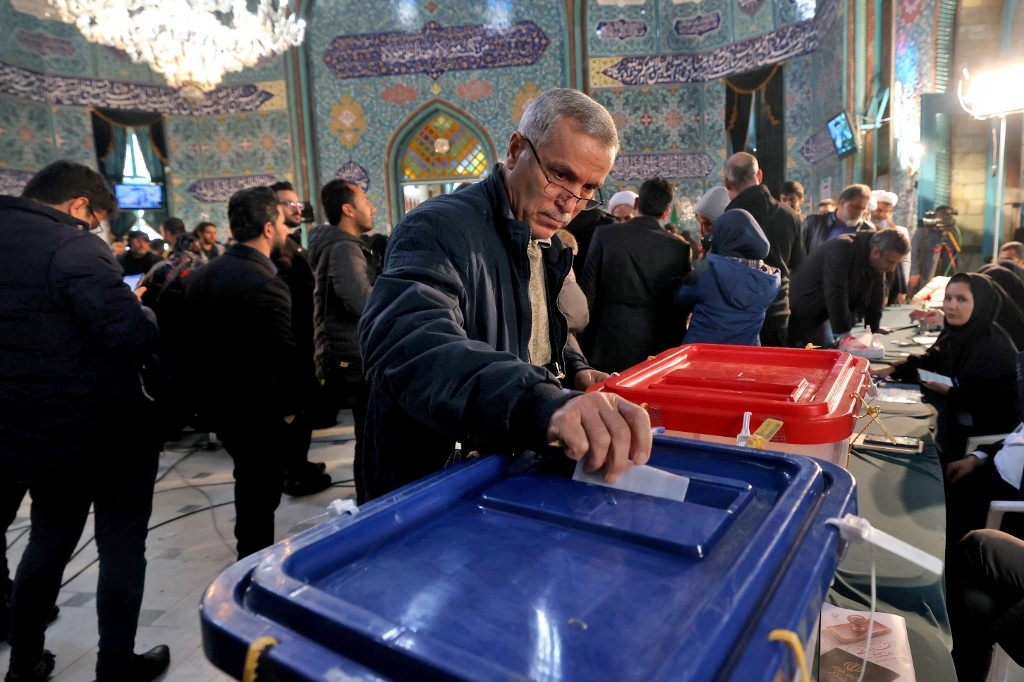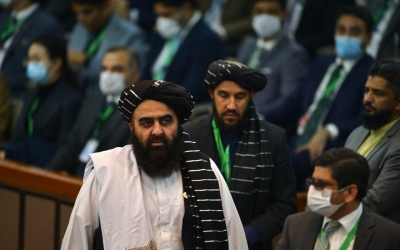Iran elections see record low turnout as conservatives expected to hold parliament

Counting began on votes cast in Iran's parliamentary elections on Saturday, with conservatives expected to hold sway after a record low turnout.
Competition for seats in the 290-member parliament involved 15,200 candidates, while a further 144 sought a place in the 88-member Assembly of Experts, which has the role of determining the next Supreme Leader of Iran among other duties.
Local media reported a low turnout in what are the first elections to be held since the anti-government protests sparked off by the death in police custody of 22-year-old Kurdish woman Mahsa Amini.
Although her death in September 2022, following her arrest for an "inappropriate" hijab, saw the country rocked by demonstrations, which saw more than 600 people killed, fierce repression has largely seen public dissent largely fizzle out since.
Polling stations closed at midnight, although the official IRNA news agency said voting hours had been extended several times during the day.
New MEE newsletter: Jerusalem Dispatch
Sign up to get the latest insights and analysis on Israel-Palestine, alongside Turkey Unpacked and other MEE newsletters
The Fars news agency said turnout was "more than 40 percent" among 61 million eligible voters. A state TV poll previously found more than half of respondents were apathetic about the vote.
The turnout, if confirmed, would be the lowest since the 1979 Islamic Revolution that brought the Islamic Republic to power.
Much of the apathy stems from the decision by the Guardian Council, whose members are determined by Supreme Leader Ali Khamenei, to limit the candidate choice on offer, with very few reformists presented for consideration.
Former reformist president Mohammad Khatami was among those reportedly boycotting the vote.
Protesters involved in the Mahsa Amini demonstrations previously told Middle East Eye that the crushing of the anti-government movement had left them pessimistic about the future.
"I and other young Iranians went to the streets last year to change this awful situation and tell the regime officials that we don't want them," said one protester last year. "But we lost and they won."
Even so, despite attempts by the Iranian government to bring in measures to crackdown on women not wearing headscarves, they are an increasingly common occurence on the streets of Tehran.
The Guardian Council has repeatedly stalled on passing stricter hijab leglisation, while a spokesperson for the council seemed to indicate in January that women not wearing a hijab would not be prevented from voting.
Middle East Eye delivers independent and unrivalled coverage and analysis of the Middle East, North Africa and beyond. To learn more about republishing this content and the associated fees, please fill out this form. More about MEE can be found here.


